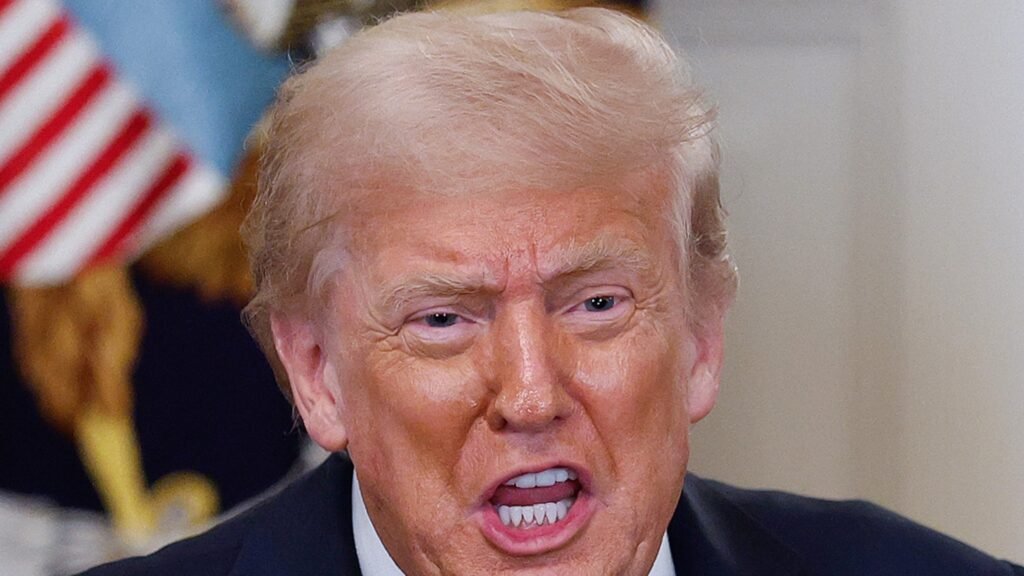Donald Trump’s Dismissal of Epstein Conspiracy Theories: A Look into His Rhetoric
On July 16, 2025, Donald Trump took to Truth Social to voice his frustration with conspiracy theories surrounding Jeffrey Epstein, the notorious financier and convicted sex offender. In a vehement post, Trump declared the rumored Epstein “client list” as a fabrication devised by the “Radical Left” and the mainstream media. He explicitly stated that he does not want the support of individuals who choose to believe in these theories, emphasizing that accepting such claims is akin to falling for a distraction designed to undermine him.
Disavowing the Epstein Files: Trump’s Bold Stance
In his latest rant, Trump criticized those who subscribe to the belief in a secret list of Epstein’s high-profile associates, referring to these theories as “bullsh*t.” The former president has consistently portrayed such narratives as part of what he views as an ongoing smear campaign against him orchestrated by Democrats and “Fake News.” This is not the first time Trump has faced conspiracy theories; however, his recent comments suggest a newfound determination to distance himself from unwavering supporters who buy into these claims.
The timing of Trump’s comments aligns with recent announcements from the Department of Justice and FBI regarding their investigation into Epstein. A memo released indicated that there is no evidence to support the existence of a “client list” or any allegations that Epstein was murdered while in custody. This revelation has left conspiracy theorists incensed, but Trump appears resolute in his dismissal of such narratives as he seeks to solidify his base.
The Epstein Scandal: Context and Implications
Jeffrey Epstein was a wealthy financier whose legal troubles escalated dramatically following accusations of sex trafficking and exploiting underage girls. His unexpected death in jail raised numerous conspiracy theories about foul play and connections to powerful public figures. While the investigation has raised serious questions, Trump’s attempt to absolve himself and his supporters from the controversy reflects a larger strategy of denying and reframing narratives that threaten his image.
By aligning the Epstein file rumors with previous critiques of the political left, Trump aims to repackage these controversies as distractions from his accomplishments. He has previously stated that he has achieved more in his presidency in a mere six months than any other leader—a claim he reiterates to galvanize his audience.
The Shift in Narrative: Facing the Evidence
As Trump lambasted the Epstein allegations, he also pointed out an interesting shift among some of his former allies, including U.S. Attorney Pam Bondi and FBI officials like Kash Patel and Dan Bongino. Once, they advocated for the release of a supposed client list; however, they now appear to align with the Department of Justice’s findings negating its existence. This change in rhetoric from prominent personalities that formerly supported these conspiracy theories could signify a broader recognition of the lack of credible evidence behind them.
This adjustment in messaging from various figures showcases the complexities surrounding high-profile legal cases and conspiracy theories. Trump’s targeted commentary on this topic seems to prioritize maintaining loyalty within his base while simultaneously dismissing narratives that may be detrimental to his political ambitions.
Loyalty and Conviction: Trump’s Call to Action
In his Truth Social post, Trump issued a stark ultimatum to his supporters: Those who believe in the Epstein conspiracies are not welcome in his circle. By labeling such believers as “weaklings,” he attempts to reinforce a sense of loyalty among those who remain steadfast in their support of his agenda. His message is clear: belief in the Epstein theories is synonymous with dis loyalty and weakness.
The former president concluded his rant with his signature “MAKE AMERICA GREAT AGAIN” slogan, reinforcing the message that his brand of politics is one of strength and conviction. This tactic, appealing to the emotions of his base, serves not just as a rallying cry but as a means to filter out dissenters. Trump’s rhetoric underscores the notion that unwavering support is a prerequisite for being part of his movement—a move that could further polarize public opinion.
Conclusion: The Future of Trump and Epstein Narratives
As Trump seeks to dismiss the Epstein files and conspiracy theories surrounding them, his ongoing rhetoric reflects a careful balancing act. By targeting the media and political opponents while strengthening his hold on loyal supporters, he attempts to navigate murky waters filled with allegations and controversy. His comments about the Epstein case serve to not only defend his own reputation but to create a resilient political identity that refuses to be bogged down by perceived threats.
Ultimately, Trump’s refusal to accept the Epstein conspiracy theories and his call to reject supporters who entertain them illustrate broader themes in his political strategy: loyalty, strength, and the reframing of narratives. As the political landscape continues to evolve, it will be intriguing to observe how Trump’s messaging impacts his base and whether these allegations will continue to resonate in public discourse moving forward.





